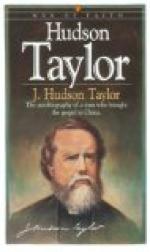One might almost imagine from the names of places and individuals here grouped on both banks of the river, that this reach of the Hudson was a bit of old Scotland: Montgomery Place and Annandale with its Livingstons, Donaldsons and Kidds on the east side, and Glenerie, Glasgo and Lake Katrine on the west.
* * *
The Catskills to the northward rise
With massive swell and towering
crest—
The old-time “mountains of the skies,”
The threshold of eternal rest.
Wallace Bruce.
* * *
=Barrytown= is just above “Daisy Island,” on the east bank, 96 miles from New York. It is said when General Jackson was President, and this village wanted a postoffice, that he would not allow it under the name of Barrytown, from personal dislike to General Barry, and suggested another name; but the people were loyal to their old friend, and went without a postoffice until a new administration. The name of Barrytown, therefore, stands as a monument to pluck. The place was once known as Lower Red Hook Landing. Passing “Massena,” the Aspinwall property, we see—
=Montgomery Place=, residence of Carleton Hunt and sisters, about one-half mile north of Barrytown, formerly occupied by Mrs. Montgomery, wife of General Montgomery and sister of Chancellor Livingston. The following dramatic incident connected with Montgomery Place is recorded in Stone’s “History of New York City”: “In 1818 the legislature of New York—DeWitt Clinton, Governor—ordered the remains of General Montgomery to be removed from Canada to New York. This was in accordance with the wishes of the Continental Congress, which, in 1776, had voted the beautiful cenotaph to his memory that now stands in the wall of St. Paul’s Church, fronting Broadway. When the funeral cortege reached Whitehall, N. Y., the fleet stationed there received them with appropriate honors; and on the 4th of July they arrived in Albany. After lying in state in that city over Sunday, the remains were taken to New York, and on Wednesday deposited, with military honors, in their final resting place, at St. Paul’s. Governor Clinton had informed Mrs. Montgomery of the hour when the steamer ‘Richmond,’ conveying the body, would pass her home. At her own request, she stood alone on the portico. It was forty years since she had parted from her husband, to whom she had been wedded but two years when he fell on the heights of Quebec; yet she had remained faithful to the memory of her ‘soldier,’ as she always called him. The steamboat halted before the mansion; the band played the ‘Dead March,’ and a salute was fired; and the ashes of the venerated hero, and the departed husband, passed on. The attendants of the Spartan widow now appeared, but, overcome by the tender emotions of the moment, she had swooned and fallen to the floor.”
* * *
The river that he loved so well
Like a full heart is awed
to calm,
The winter air that wafts his knell
Is fragrant with autumnal
balm.




